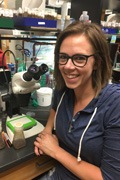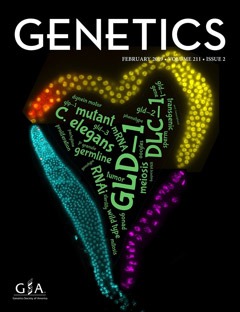Starter Culture Microgrants
The Starter Culture Microgrant Program funds projects that will benefit the genetics community and allows GSA to be more responsive to member needs and changing contexts. This program gives GSA members of any career stage up to $2000 for a project that will:
- Respond to the community’s needs by providing small starter funding for critical projects.
- Have broad and far-reaching intellectual, practical, and geographic impacts which are not limited to institutional events in a single location.
- Benefit students and faculty with projects that are organized by and/or target scientists in need of funding.
Bi-annual application deadlines each year are:
- June 30 for projects funded and held August through December
- December 31 for projects funded and held February through May
Print or make a copy of the Starter Culture Microgrant Application Checklist here! Use this checklist to enhance the quality of your application, prepare question responses, and make sure you include all requested information for a high quality application.
Of note: While GSA recognizes the need for funding of individual scientific research projects in many under-resourced regions, we are unable to fund individual research projects through the Starter Culture Microgrant Program.
Review Criteria
The Microgrant Review Committee will consider the following primary criteria when selecting proposals to fund:
- Potential to benefit the field of genetics and/or the GSA community (recognizing that not all members of the GSA community are geneticists)
- Need for the initiative
- Evidence of attention to the practicalities of the initiative, e.g. proposed logistics, expertise and resources required, timelines, distribution methods
- Evidence of attention to equity and inclusion in the proposal, for example in developing the program, selecting organizers and speakers, event accessibility, or advertising strategies
Award Conditions
- For successful applications, GSA will reimburse up to $2,000 to support direct costs for an initiative (including, but not limited to: facility rental, audiovisual equipment rental, printing, travel, speaker or facilitator fees, advertising, supplies, refreshments, subscription costs, or contracted services). GSA funds may not be used for indirect or overhead costs (excluding virtual platform costs), salaries, or alcoholic beverages.
- Awardees must work with GSA staff to arrange display of the GSA logo on all appropriate public materials, e.g. the initiative website, event signage, or advertising materials, and, where appropriate, facilitate the dissemination of informational material about GSA programs, e.g. displaying GSA informational pamphlets or slides at an event or providing a link to relevant GSA programs on a website.
- Awardees must work with GSA staff on appropriate promotion of the initiative (where relevant) to GSA members. For example, GSA may interview awardees about their initiative and publish blog or social media posts.
- Awardees will solicit feedback from initiative participants (where relevant) and conduct any evaluation indicated in their proposal materials
- One month after completion of the initiative, awardees will provide:
- A final report that includes information on impact of the initiative, successes, challenges and lessons learned, and any surveys or evaluation as indicated in the proposal
- A list of initiative participants (where relevant), including name, institutional affiliation, email address, and career stage
- An itemized financial accounting of how funds provided by GSA were spent, including documentation and receipts
- These grants cannot be used to fund honoraria
- These grants cannot fund a contractor if the contractor is the grant recipient
Eligible Candidates
Proposals for a Starter Culture Microgrant may be submitted by an individual or a group from anywhere in the world. The principal applicant or at least one corresponding applicant must be a current GSA member at the time of application submission. Those scientists and students who are full-time residents of countries with low- and middle-income economies are eligible for a complimentary two-year GSA membership. Please email society@genetics-gsa.org to request or renew an LMIC Membership.
Any proposed initiatives must be in keeping with GSA’s mission and include specific information on how organizers anticipate that the proposed event or project will benefit the genetics community.
Proposed initiatives must benefit a large or small group of any size rather than an individual, and proposals for personal professional development (e.g. travel funds for the applicant to attend a meeting or visit a lab) will not be considered. Supported projects may include both in-person and virtual formats. We encourage creativity and new ideas for how to connect with your genetics community and GSA at large.
Timeline
Applications will remain open year-round. The Microgrant Review Committee will meet once every six months to determine the awardees, and up to $2,000 will be funded per six-month period. Awardees will be announced twice per year.
Questions about the program or application? Email engagement@genetics-gsa.org.
Learn more about career development at GSA
Early Career Leadership and Professional Development Program
Students, postdocs, and other early career scientists (ECS) are the future of the GSA community. To strengthen their voice in the Society, GSA developed the Early Career Scientist leadership and professional development program. This program provides rich opportunities for early career scientists to develop skills, gain experience, network, and produce concrete deliverables that demonstrate their abilities.
GSA Journals Peer Review Training Program
Peer-reviewers are vital to science, yet early career scientists in our field rarely receive formal training in how to be a good reviewer. GSA and the GSA Journals, GENETICS and G3: Genes|Genomes|Genetics, are addressing this gap with a program that gives early career members real-world peer review experience. Participants will receive online training, feedback, and will become reviewers for manuscripts submitted to the journals.



